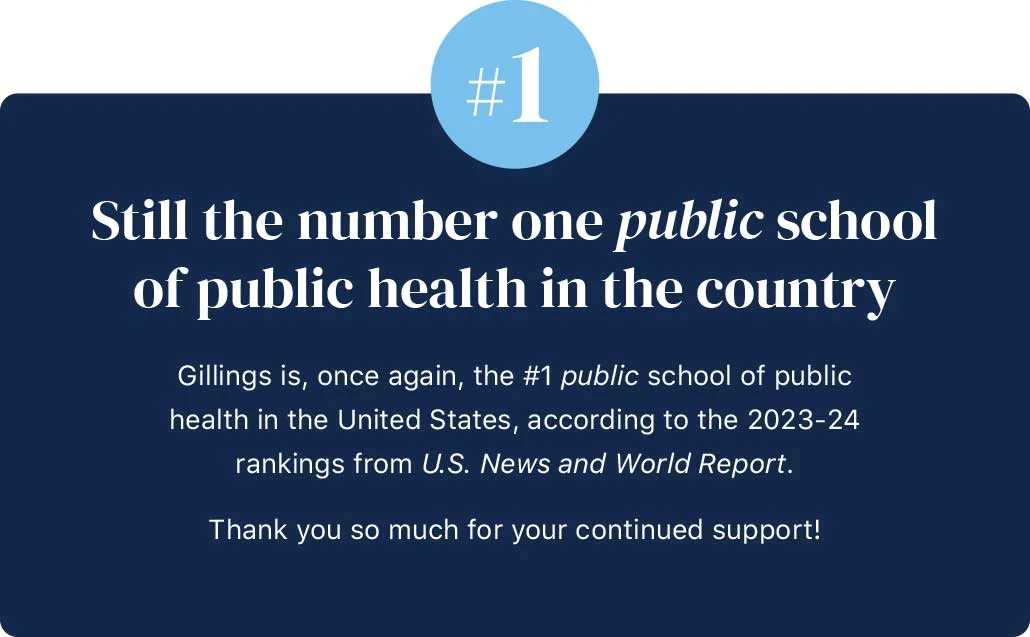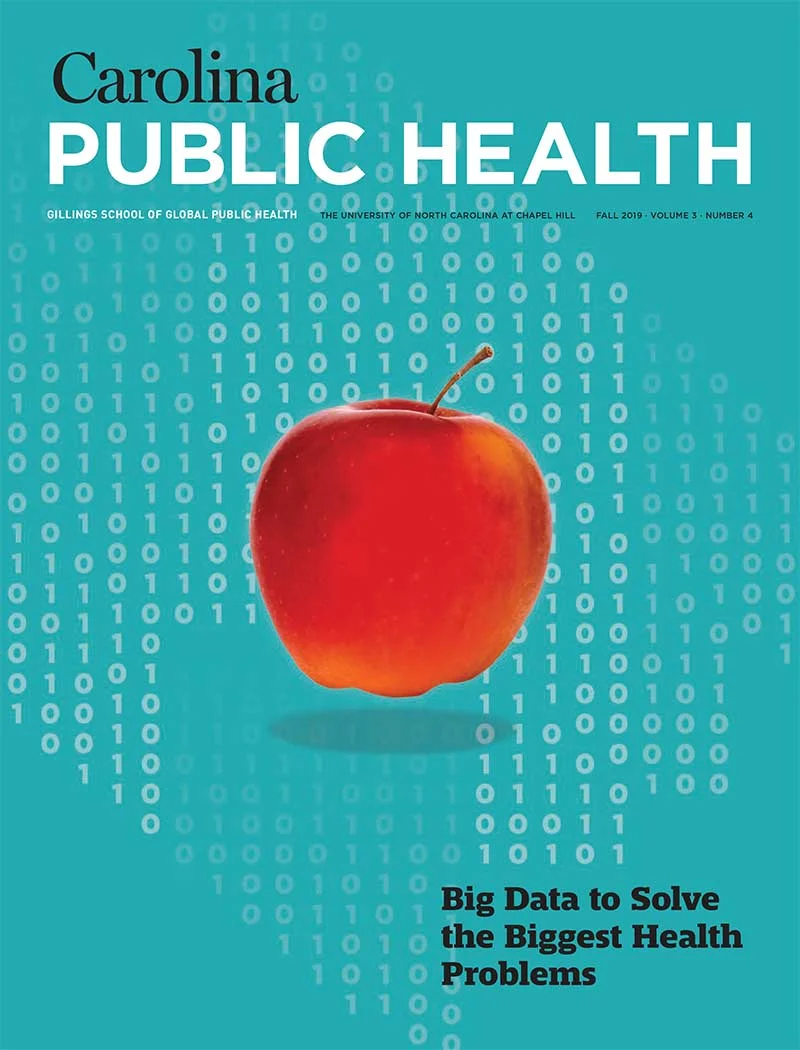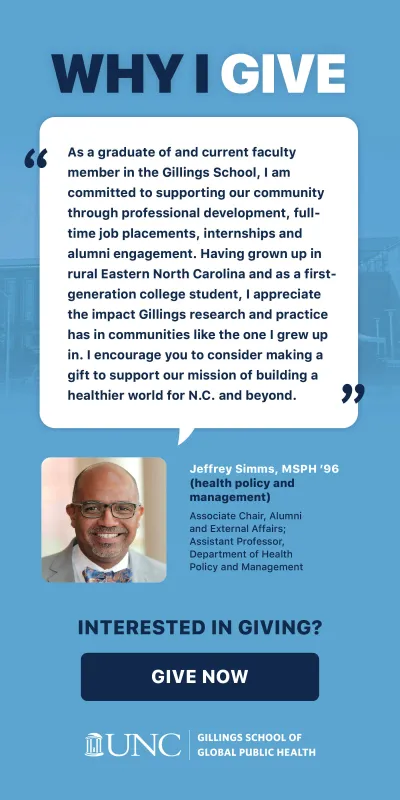Advancing Precision Health: Exploring the Intersection of Research and Collaboration
Pictured: staff scientist Kendra Gully and Dr. Ralph Baric.
This research emphasizes tailored strategies, collaboration, and translation into interventions. Gillings researchers foster an engaging environment for problem-solving.
Penny Gordon-Larsen is a professor of nutrition and associate dean for research at the UNC Gillings School of Global Public Health. Her research focuses on susceptibility to obesity and its cardiometabolic consequences, especially issues related to ethnicity, equity, and development of obesity over the lifecycle.
I am pleased to serve as the Guest Editor of Carolina Public Health on precision health featuring the breadth and depth of Gillings research that ranges from molecules to societies, from prevention to treatment, and across North Carolina and around the world.
Our faculty are tackling the world’s biggest public health challenges of our day. Gillings faculty are true innovators who are forging new paths to create novel science in an effort to improve lives of people all over the world.
What is precision health? We define precision health as personalized prevention and treatment strategies tailored to each individual’s own biological, social and environmental characteristics and targeted to each community’s own resources, conditions and needs. The examples in this issue of Carolina Public Health showcase the breadth of precision health research at Gillings.
While precision health has garnered much recent attention, most of this attention has focused on treatment. Yet if we are to truly impact population health, then precision health must also focus on prevention. Gillings faculty have long used tailored approaches to address health problems, drawing attention to population context and individual differences in responses to interventions. Our strength in implementation science has guided our use of innovative methods to most efficiently and effectively incorporate evidence-based practices and policies into efforts to improve population health.
Translation is key — Gillings faculty turn observations from the laboratory, clinic and community into interventions and policies that improve the health of individuals and the public. This is achieved through collaborative team science that brings experts from different fields together to learn from each other and to generate the best methodological and statistical approaches that simultaneously address biological, social and environmental factors to solve pressing and complex public health problems. This is where the magic happens: Bringing experts together to talk science and share substantive and methodological expertise can lead to impressive discoveries and breakthroughs.
Unfortunately, much of the previous work in precision health has focused on narrow segments of the world’s population. Gillings researchers seek to overcome this major limitation by collecting data in diverse populations and across a range of social and economic conditions across the world. Attention to diversity and inclusion is imperative: Without it, there is danger that findings may reinforce social, health, educational and economic inequities. That’s why Gillings researchers have been working tirelessly to generate new knowledge that represents diversity in social, economic, and geographic perspectives. This is a hallmark of our work as the Gillings School of Global Public Health.
I arrived at Gillings more than two decades ago as a postdoctoral fellow. I marveled at its collegiality and how many doors were open across the school, enabling conversations among basic scientists, behavioral interventionists, policy researchers, biostatisticians and epidemiologists. That deeply engaging and collaborative environment continues today — and it fosters amazing opportunities to come together to solve the world’s greatest problems.




